Are you gearing up to negotiate your benefits package after receiving a job offer? It can feel a bit daunting, but with the right approach, you can secure a deal that truly meets your needs. This letter template will guide you in articulating your expectations clearly and confidently to your employer. So, let's dive in and help you craft the perfect message to maximize your benefitsâread on for helpful tips and insights!

Specific benefit enhancements requested
Negotiating benefits packages is essential for employees seeking better work-life balance and mental well-being. Enhanced health insurance coverage, such as comprehensive dental and vision plans from providers like Aetna or UnitedHealthcare, can lead to improved employee satisfaction. Subsidies for public transportation (potentially up to $200 monthly) significantly reduce commuting stress. Flexible work hours, including options for remote work, enhance productivity and promote a better work-life integration. Professional development stipends, targeting up to $1,500 annually, bolster employees' skill sets and career growth opportunities. Additionally, increased vacation days, ideally rising to a total of 20 paid days off per year, encourage proper rest and rejuvenation, fostering loyalty and reducing turnover rates.
Comparative industry standards
Negotiating a benefits package offer requires a keen understanding of comparative industry standards within the specific field. Companies like Google and Microsoft typically offer comprehensive benefits that include health insurance, retirement plans (such as 401(k) with company matching), and generous paid time off policies, which can range from 15 to 25 days depending on the employee's tenure. Moreover, the tech industry's standard for wellness programs often includes gym memberships and mental health support services, reflecting a holistic approach to employee well-being. Compensation packages may also feature stock options, with a notable trend of companies providing equity to retain top talent. Understanding these benchmarks can empower candidates to advocate for a competitive benefits package that aligns with industry norms and reflects their professional value.
Personal value alignment
In today's competitive job market, organizations often present comprehensive benefits packages to attract and retain top talent. A well-structured benefits package may include health insurance (covering medical, dental, and vision), retirement plans (such as 401(k) options with employer matching), paid time off (vacation days, sick leave, and holidays), and professional development opportunities (ongoing training, workshops, and tuition reimbursement). Personal value alignment becomes crucial when negotiating these packages, ensuring that the offered benefits resonate with individual needs and expectations. For instance, a potential employee might prioritize mental health resources (such as counseling services) or family-related benefits (including parental leave policies) that support work-life balance. Understanding the demographics and specific needs of the workforce can lead to more tailored and effective benefits packages that improve overall employee satisfaction and retention.
Long-term career goals
When evaluating a benefits package, it is essential to consider how it aligns with long-term career goals, such as professional development and work-life balance. An ideal benefits plan may include educational assistance programs for continuous learning (covering certifications like PMP or advanced degrees), comprehensive health insurance (including mental health support), and retirement savings options (such as 401(k) matching). Additionally, flexible working arrangements (remote work policies, flexible hours) can significantly enhance productivity and job satisfaction while fostering a positive work culture. Understanding the total compensation package, including bonuses and stock options, helps assess overall career progression and financial stability, making it crucial to negotiate for a package that supports future aspirations.
Potential contributions to the company
Negotiating a benefits package offer is crucial for ensuring personal and professional growth within a company. A comprehensive benefits package includes health insurance options, retirement plans including 401(k) matching contributions, and flexible spending accounts that enable employees to allocate pre-tax dollars for medical and dependent care expenses. Furthermore, wellness programs could enhance employee productivity by offering gym memberships or mental health resources. Educational assistance through tuition reimbursement can support ongoing development and employee skill advancement, contributing to higher employee retention rates. Additionally, implementing remote work options or flexible hours can improve work-life balance, leading to increased job satisfaction and overall company performance. Companies that prioritize competitive benefits packages often attract top talent, fostering a positive workplace culture and sustained business success.
Letter Template For Negotiating Benefits Package Offer Samples
Letter template of discussing health and retirement benefits in job offer
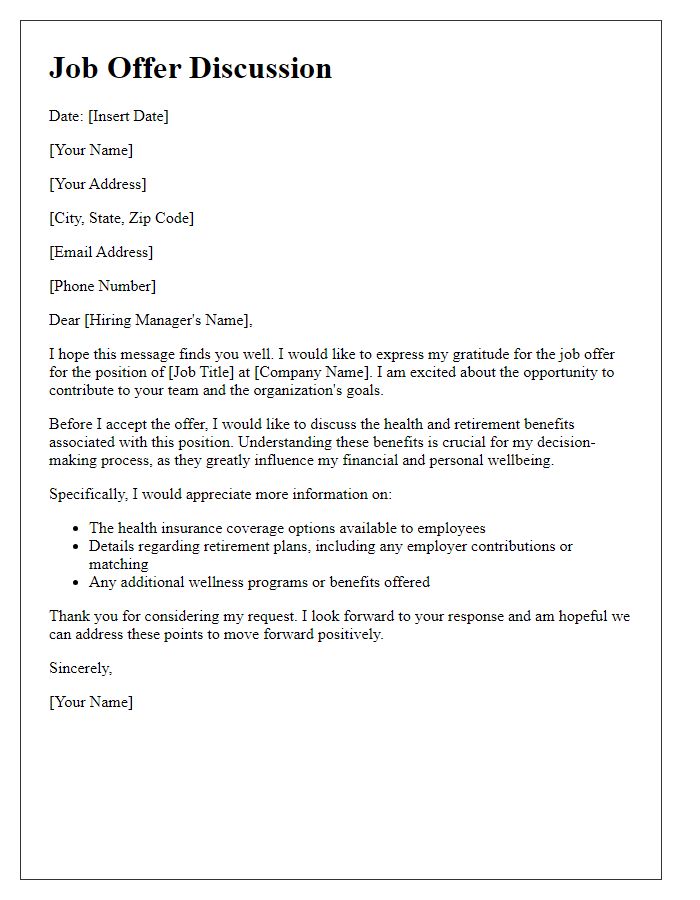

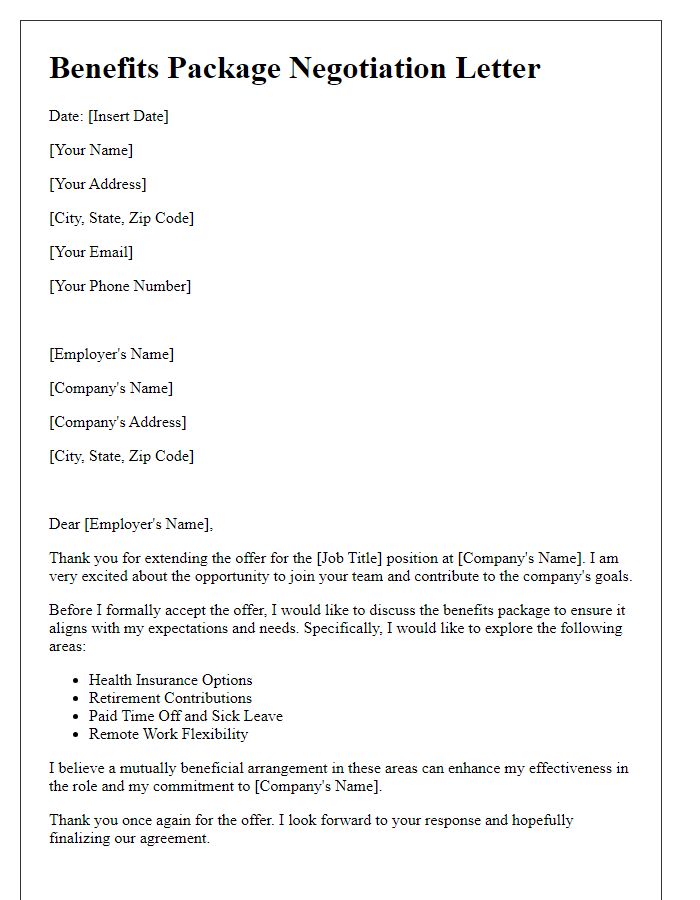
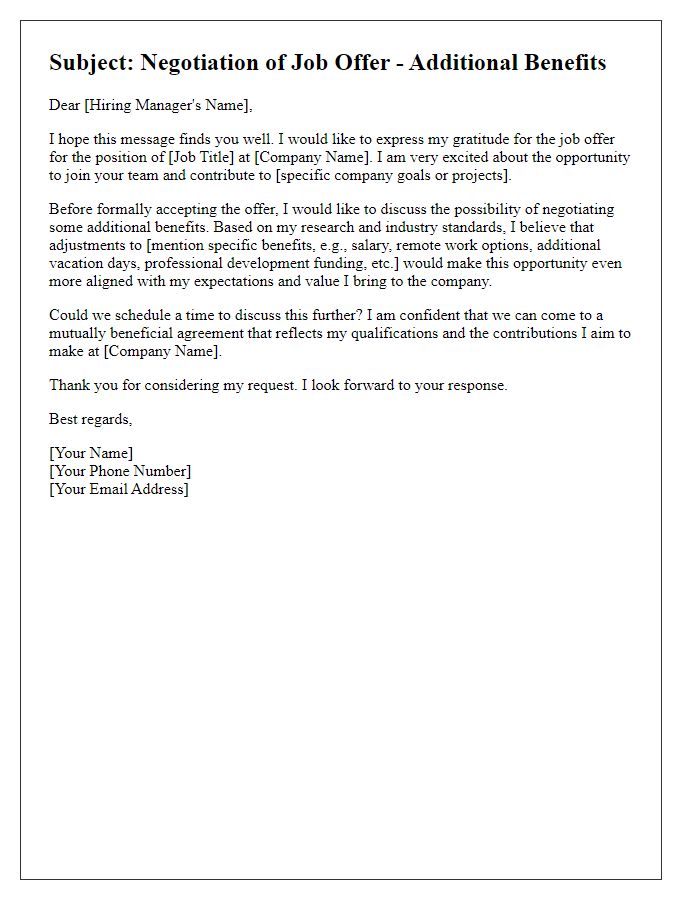
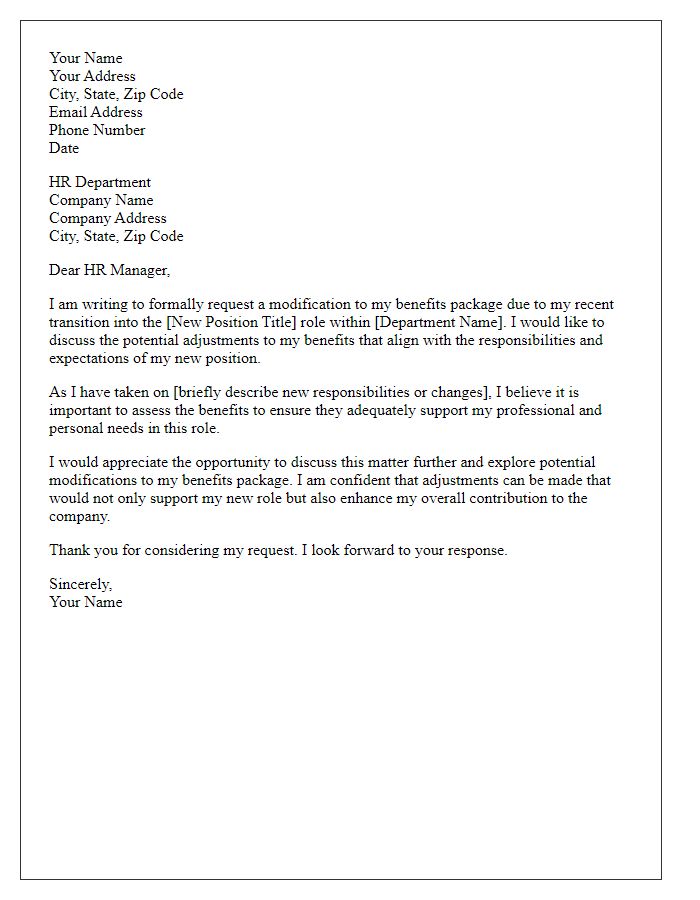
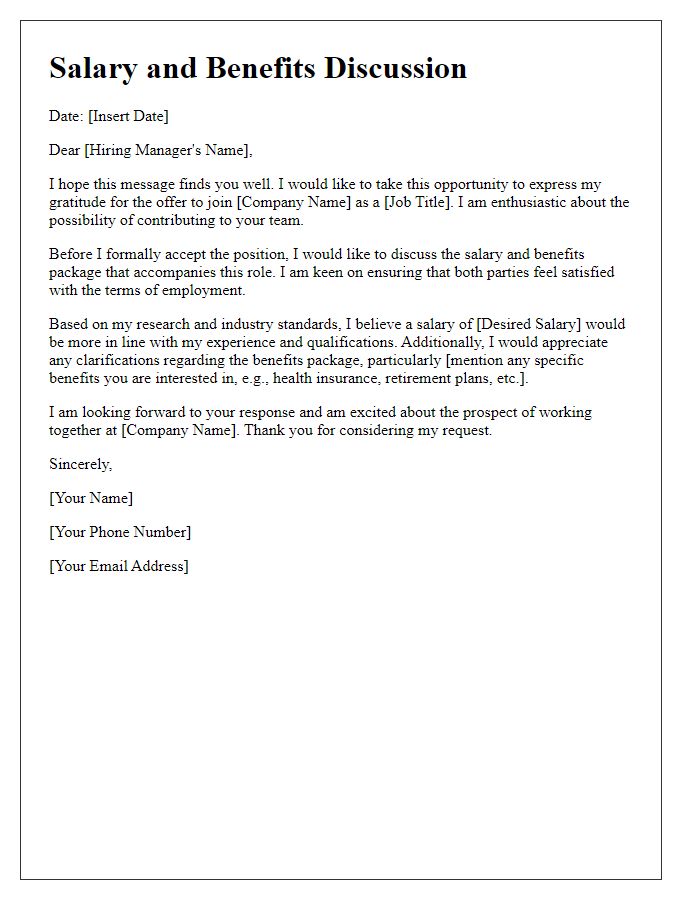
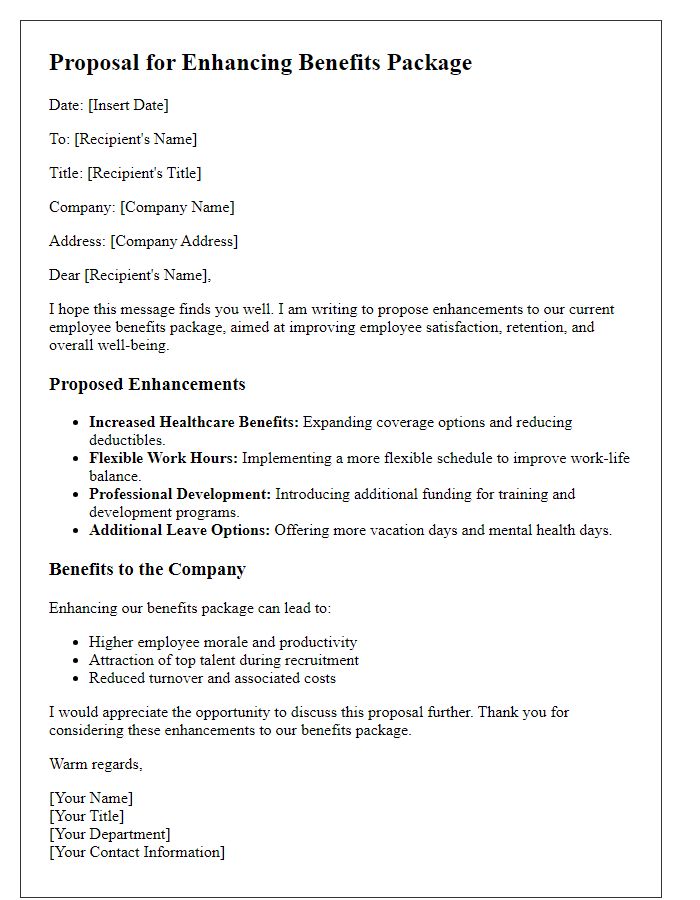
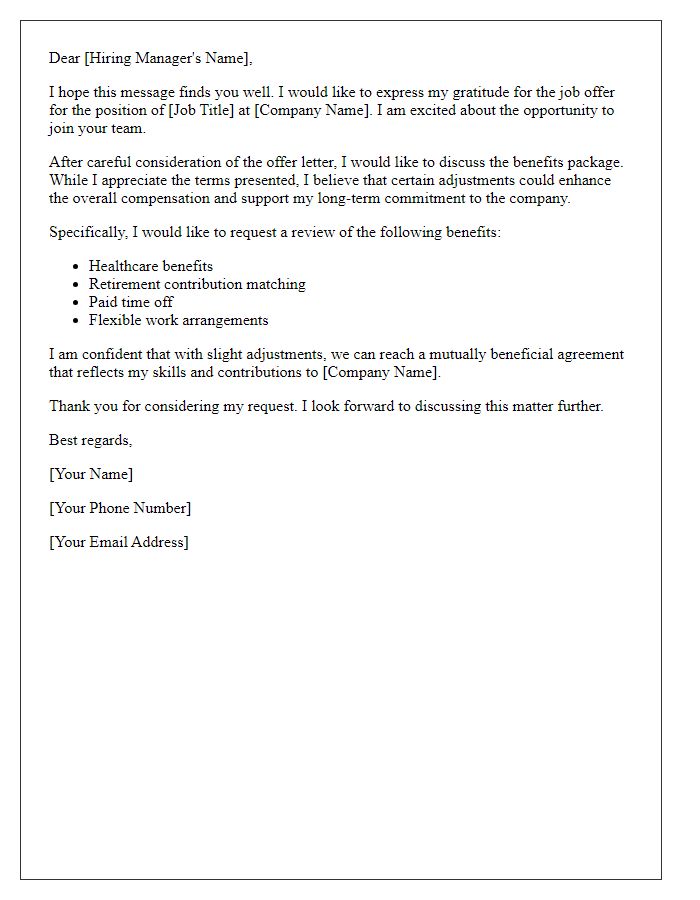
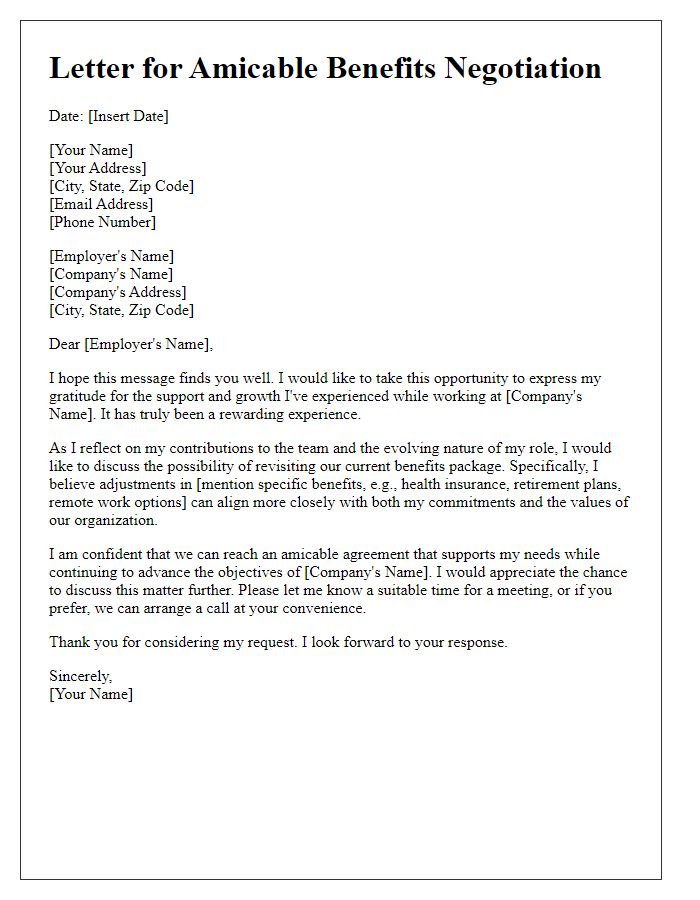
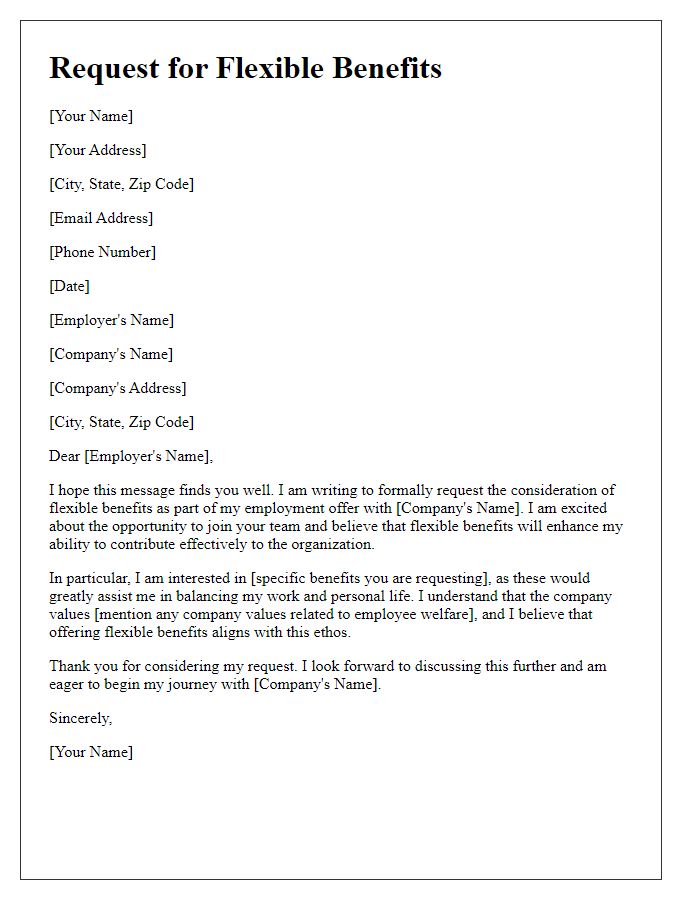
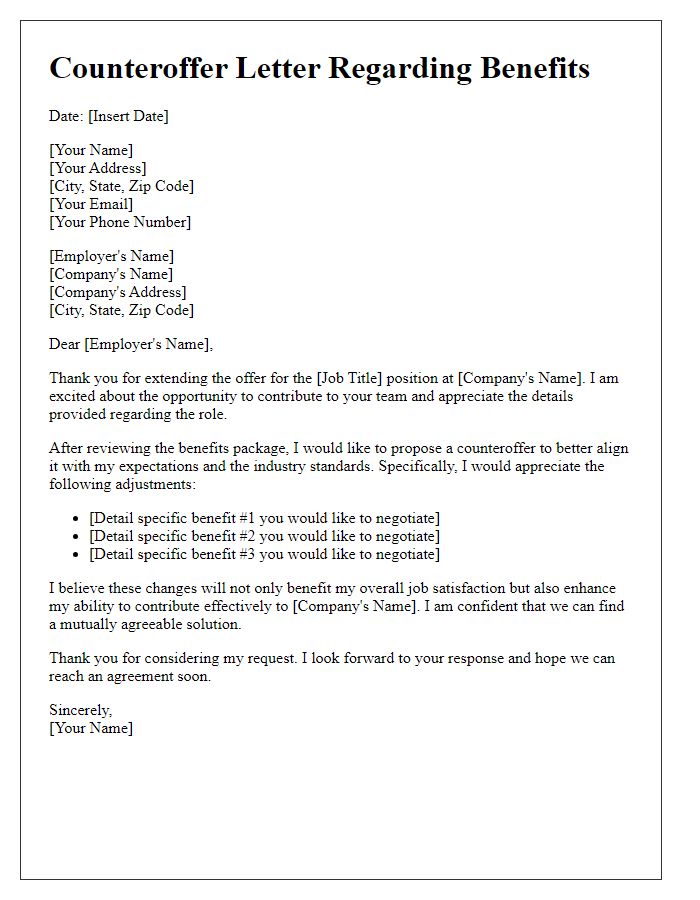


Comments